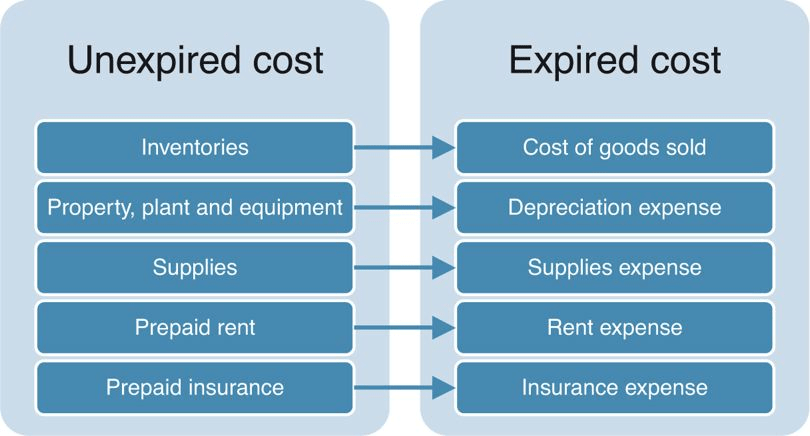Comparing Condos vs. Co-ops: What Are the Key Differences?
Nov 19, 2023 By Susan Kelly
The number of community associations has increased rapidly over the previous year and is now estimated to be between 352,000 and 354,000. The Community Organizations Institute estimates that almost 74 million Americans already reside in community associations. Condominium associations and cooperative housing associations are two of the most prevalent examples of these groups. The comparison between the two is detailed below.
What Is a Condo?
In Toronto, condos are a popular choice among residents. To put it simply, they are dwellings that are part of a larger community or structure; the owner will have title to their specific unit rather than the whole property. All property owners have the right to use the common spaces, but they do not share in the ownership of such places. You may acquire a variety of locations, such as a parking spot, a storage facility, etc.
Maintenance
Condominium owners must pay a monthly maintenance charge to cover the costs of upkeep for shared spaces, services, and amenities. The security fees will also be included in the total price. Since not all residents will likely make use of the shared spaces, you may worry that the upkeep costs are too expensive. However, since there are many individuals living in a condo complex, the maintenance charge is well distributed, resulting in very low per-person costs for all of the facilities.
Restrictions
There are a few constraints that come with condo living. There might be restrictions on things like pet ownership and subletting. Typically, condo associations have strict rules on unit transfers. A condo association's residents must respect the association's financial policies and comply with its bylaws.
Difference in costs
Condominium prices are often higher than co-op rates when calculated per square foot. The average price of a condominium in Canada was $452,451, up 3.8% over the previous year (1). Condominiums, on the other hand, have simpler financing requirements since they don't need a mortgage. Typically, condo fees are also less expensive. While condominiums often have a greater property tax than co-ops, co-ops seldom have a property tax.
What are Co-ops?

Co-op ownership is distinct from condo ownership in a number of important respects. A co-op requires the buyer to invest in the cooperative that owns the building in order to acquire ownership of the unit. A co-op board of directors is accountable for the majority of the management decisions, much as a condo's condo council.
Maintenance
A co-op often has lower monthly maintenance costs than a condominium. However, co-op members are still responsible for paying their monthly maintenance costs. Instead, the monthly maintenance charge in this situation is paid for by the co-op shareholders themselves.
Restrictions
Individual units provide you with more customization than condos. You will have the same rights as a shareholder in a cooperative housing organization, including the ability to construct additions and make alterations to the property in accordance with the conditions of your lease with the corporation. Because co-op members really own a piece of the building, they are free from many of the constraints that apply to renting an apartment.
Difference in costs

In comparison to condos, co-ops are far more affordable. If you meet the requirements set out by the management board of the co-parent op's company, and if the board approves your purchase of a unit, then you will have a co-op. Co-ops often sell for around half of what comparable condos would cost. Additionally, since individual shareholders are involved in a co-op, purchasers are given greater responsibility and influence. However, getting a co-op mortgage is still difficult since many banks need a larger down payment.
Conclusion
Considering how long you want to stay in the condo or co-op is the first step in deciding which is more practical for you, given the benefits and drawbacks of each. Long-term tenants may save a significant amount of money by choosing a co-op over a condo. One more possible upside? In a co-op, you get to choose your neighbors. Through the ordeal of the interview, you have a better sense of who you could run across in the break room. However, having an apartment might increase your portfolio's diversification. Condominium regulations may restrict the number of tenants in a building, but condo owners may sublease their units and often see higher sales prices as a result.

A Step-by-Step On How To Find Your Social Security Number
Dec 12, 2023
Looking for your social security number but need help figuring out where to start? Here are the steps you can take to locate your number and safeguard yourself against potential fraud quickly

Wash Sale Rule for Capital Gains Tax
Nov 03, 2023
By the wash sale rule of the Internal Revenue Service (IRS), an investor is not permitted to buy the same securities (or substantially comparable ones) within thirty days before or after the sale of such assets.

Understanding the Basics of Form 1099-DIV: A Comprehensive Guide
Jan 07, 2024
Navigate tax reporting with ease! This guide simplifies Form 1099-DIV, highlighting its importance, explaining the information it contains, common mistakes to avoid, and tips for accurate tax filing

All You Need To Know About Absolute Return
Nov 30, 2023
The rate of return earned on an asset over a specified time is called its absolute return. We are looking at the percentage gain or loss that an investment vehicle such as a stock or mutual fund has experienced over time.

Best Stocks With Monthly Dividends To Buy Now
Jan 15, 2024
Stocks that pay dividends regularly can be held indefinitely without affecting the investor's standard of living. Monthly dividend stocks are popular among investors because they provide a more consistent cash flow than their quarterly and annual counterparts. This post will discuss the top stores offering monthly dividends that investors may buy right now and the rationale behind our selections.

Do You Know: What Is Reinvestment Risk?
Feb 05, 2024
Cash flows from an investment, such as interest or coupon payments, are subject to reinvestment risk if the investor is concerned about not being able to reinvest them at a rate of return at least equal to the current rate. This new interest rate is known as the reinvestment rate. Since zero-coupon bonds never pay a coupon, they are risk-free investments.

A Guide To Earning Money On eBay
Jan 25, 2024
There is a need for a centralized location where individuals can meet to do business via the internet, and this is precisely what e-commerce platforms aim to provide. The only way to make money on such an e-commerce site is to sell something.

Tips for Teaching Your College-Bound Child About Credit and Debt
Oct 22, 2023
Teaching your college-bound child about credit and debt is important in preparing them for financial independence. By starting early and providing them with the knowledge and tools they need to make informed financial decisions, you can help them avoid financial mistakes and achieve long-term financial stability

What To Do About Your Student Loans in 5 Easy Steps
Oct 11, 2023
Do you feel completely paralyzed by the weight of your student loans? The good news is that you have a company: More than $1.6 trillion has been borrowed for education in the United States. That's just slightly smaller than the total national mortgage debt. Student debt makes it more difficult for recent graduates to enter the housing market.

Navigating Home Equity Loans
Mar 19, 2024
Uncover the best home equity loan options with a Home Equity Loan Finder. Compare loans easily for informed decisions.

Can You Deduct Margin Interest on Your Taxes
Feb 20, 2024
The Internal Revenue Service permits taxpayers to deduct certain costs associated with investments if those costs are directly tied to generating taxable income from investments. Let's look at some of the most frequent deductible investment costs and how they might reduce your taxable income since increasing the amount of tax deductions you claim can decrease the amount of money you owe in taxes

Comparing Condos vs. Co-ops: What Are the Key Differences?
Nov 19, 2023
Condos and co-ops are two different types of housing with significant distinctions. Ownership structure, funding alternatives, taxes, pricing, and fees are examples of these. Management companies for co-ops and condominiums are distinct. The co-op equivalent of a homeowners' association is a board or committee (HOA). Co-ops sell shares under a fractional ownership structure, whereas condos give exclusive ownership. Co-op shareholders screen each other before the entrance, unlike condo owners. Financial documents, credit histories, and other records may all be examined..